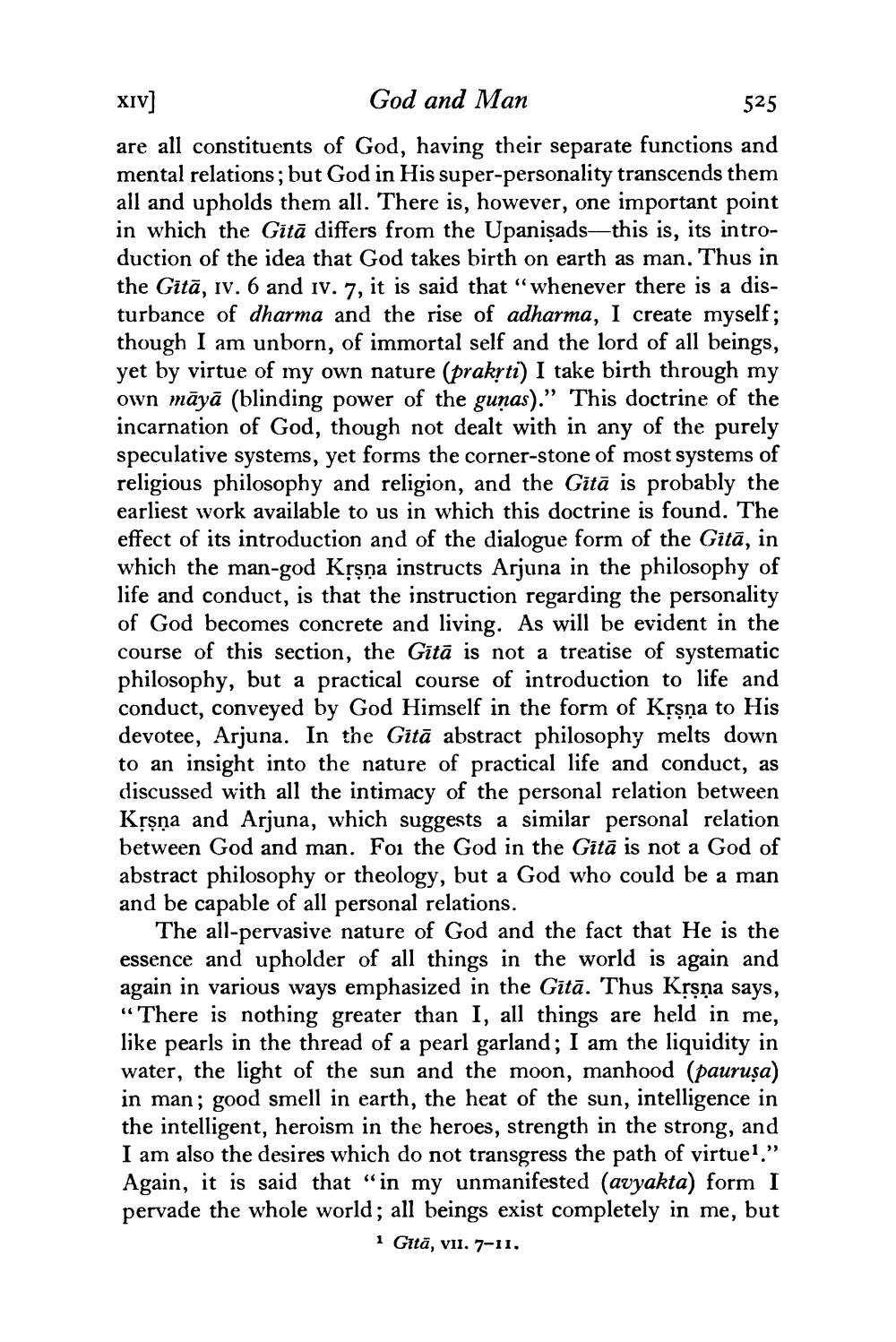________________
XIV]
God and Man
525
are all constituents of God, having their separate functions and mental relations; but God in His super-personality transcends them all and upholds them all. There is, however, one important point in which the Gità differs from the Upaniṣads-this is, its introduction of the idea that God takes birth on earth as man. Thus in the Gita, IV. 6 and Iv. 7, it is said that "whenever there is a disturbance of dharma and the rise of adharma, I create myself; though I am unborn, of immortal self and the lord of all beings, yet by virtue of my own nature (prakṛti) I take birth through my own māyā (blinding power of the gunas)." This doctrine of the incarnation of God, though not dealt with in any of the purely speculative systems, yet forms the corner-stone of most systems of religious philosophy and religion, and the Gitā is probably the earliest work available to us in which this doctrine is found. The effect of its introduction and of the dialogue form of the Gitā, in which the man-god Kṛṣṇa instructs Arjuna in the philosophy of life and conduct, is that the instruction regarding the personality of God becomes concrete and living. As will be evident in the course of this section, the Gītā is not a treatise of systematic philosophy, but a practical course of introduction to life and conduct, conveyed by God Himself in the form of Kṛṣṇa to His devotee, Arjuna. In the Gītā abstract philosophy melts down to an insight into the nature of practical life and conduct, as discussed with all the intimacy of the personal relation between Kṛṣṇa and Arjuna, which suggests a similar personal relation between God and man. For the God in the Gitā is not a God of abstract philosophy or theology, but a God who could be a man and be capable of all personal relations.
The all-pervasive nature of God and the fact that He is the essence and upholder of all things in the world is again and again in various ways emphasized in the Gītā. Thus Kṛṣṇa says, "There is nothing greater than I, all things are held in me, like pearls in the thread of a pearl garland; I am the liquidity in water, the light of the sun and the moon, manhood (pauruṣa) in man; good smell in earth, the heat of the sun, intelligence in the intelligent, heroism in the heroes, strength in the strong, and I am also the desires which do not transgress the path of virtue1." Again, it is said that "in my unmanifested (avyakta) form I pervade the whole world; all beings exist completely in me, but
1 Gitā, vII. 7-11.




